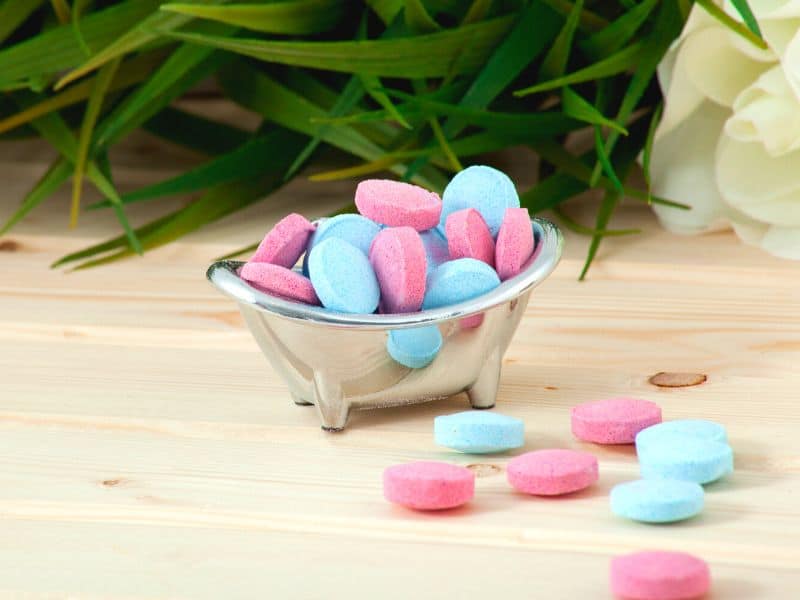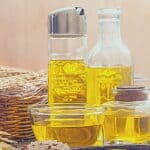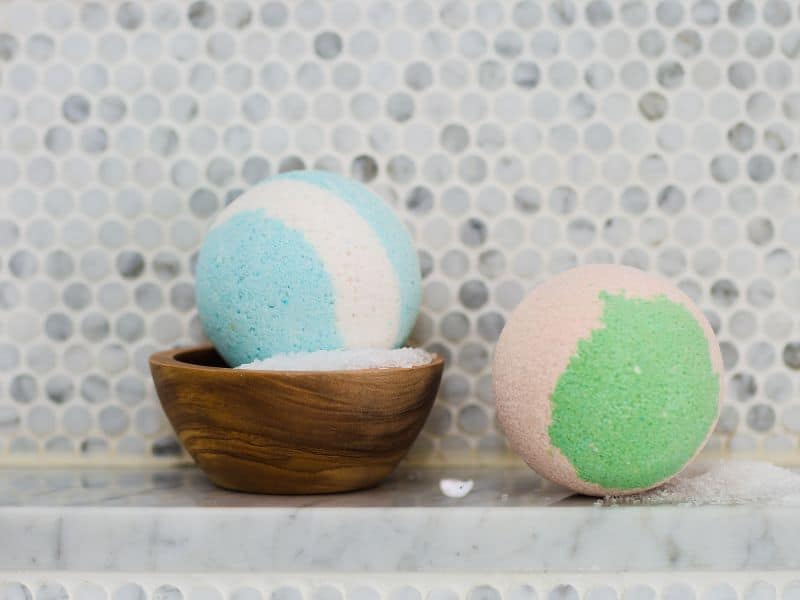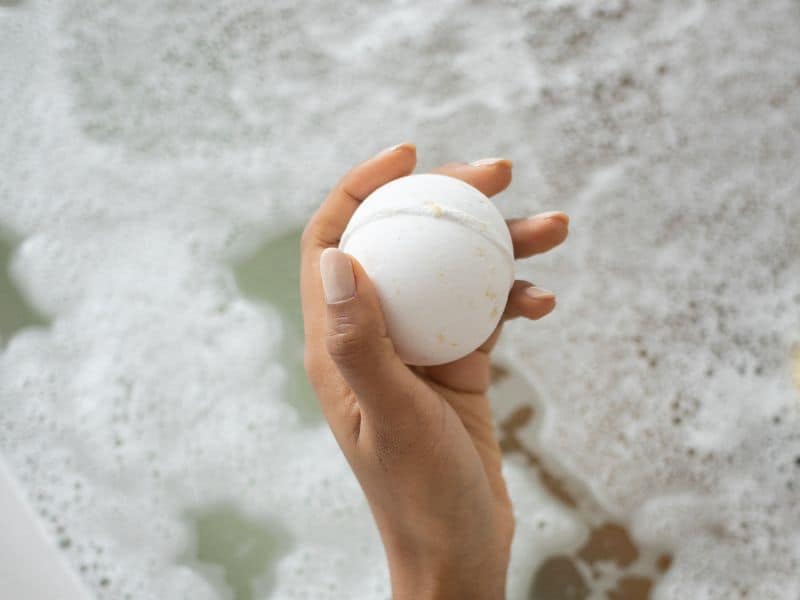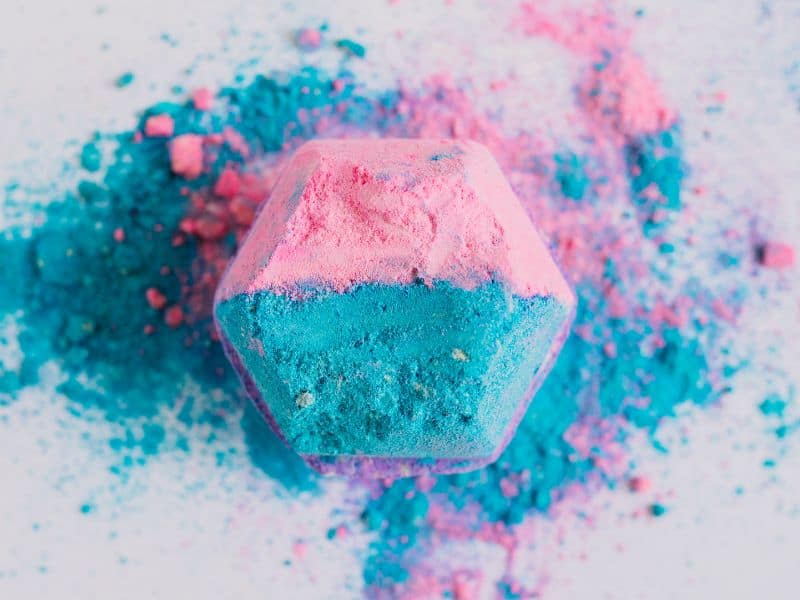While bath bombs are colorful and fun to drop into your bathtub, it’s important to remember that they aren’t edible. In fact, eating bath bombs can be dangerous for both adults and children, so it’s essential to keep them away from curious little hands. Learn more about the dangers of ingesting bath bombs and why these products should only be used in the bathroom below.
Consuming small amounts of bath bomb substances can lead to minor effects such as mouth irritation, nausea, vomiting, and diarrhea. However, ingesting large quantities poses the risk of more serious toxicity and risk more serious consequences.
Contact poison control centers: 1 (800) 222-1222
It’s important to note that bath bombs do not contain food-grade ingredients or edible components and it is not recommended that you eat them. In fact, many of the ingredients can be harmful to your health if ingested in large quantities.
Bath Bomb Introduction
What is a bath bomb?
Bath bombs are a bath-time accessory that can add an extra bit of color and aroma to bathwater. They are typically made with sodium bicarbonate, citric acid, Epsom salts, essential oils, and other fragrances or dyes.
When bath bombs come in contact with water they fizz and dissolve quickly, releasing their fragrances and colors into the bath.
What are the dangers of eating one?
Eating bath bombs can be dangerous, as bath bomb ingredients are not meant to be ingested. Ingesting bath bombs may lead to irritation of the gastrointestinal tract, nausea, vomiting, and diarrhea.
Health Risks of Eating a Bath Bomb
The main warning is that bath bombs usually include sodium bicarbonate, also known as baking soda. Eating too much baking soda can cause nausea, vomiting, abdominal pain, and even dehydration. There is potential for serious illness when ingesting baking soda in large amounts over a short period of time.
Another ingredient found in bath bombs is citric acid. While citric acid is an organic compound found naturally in certain fruits and vegetables, it’s possible to have a negative reaction if it’s consumed in large amounts by itself or with other ingredients like baking soda. Eating food high in citric acid can lead to oral irritation or sensitive teeth due to acid erosion from long-term exposure.
Aside from those two common ingredients, most bath bombs contain colorants and fragrances which may not be suitable for consumption either — particularly synthetic fragrances which can contain formaldehyde or phthalates, both of which may cause skin irritation upon contact.
Effects on the Body
Potential physical reactions to eating a bath bomb
- Gastrointestinal upset
- Throat irritation
- Allergic reactions or skin irritation upon contact.
Long-Term Health Risks
Possible long-term health risks associated with consuming bath bombs
- Damage to teeth
- Organ damage
- Organ failure
- Death in severe cases
In general, bath bombs should not be eaten under any circumstances as they are not intended for consumption.
Eating bath bombs is not recommended for safety reasons — the ingredients are not intended for consumption and could potentially lead to dangerous health effects. Keep
Prevention and Treatment
Ways to prevent eating a bath bomb
Keep bath bombs stored in a secure place away from small children or toddlers. Discourage children from tasting bath products and never leave small children alone in the bath.
Treatment options for those who have consumed one
If bath bombs have been ingested, contact poison control and seek immediate medical attention. The treatment required will depend on the amount of material that has been ingested and the age of the person who ingested it.
The medical response and treatment may be much greater for a child than for an adult.
While some people may think eating a small amount of a bath bomb might not be harmful, it’s better to avoid this altogether since there are no nutritional benefits associated with doing so.
Educate Children About Household Products
It is crucial to educate children about the risks associated with eating household products because accidental ingestion can lead to serious harm or even death. Children are naturally curious and explore their surroundings, including household items such as cleaning supplies, medications, and other substances that are not meant for consumption.
Therefore, it is essential to educate children about the dangers of ingesting such products to prevent accidents and keep them safe.
Discuss The Purpose of Products
One way to educate children about the risks of eating household products is to start by discussing the purpose of each item found in the house. For example, explain that cleaning supplies are used to clean the house and that they contain chemicals that are harmful if ingested. Similarly, explain that medication is intended to treat illnesses and should only be consumed under the supervision of an adult. By explaining the purpose of each item, children can understand that these products are not meant for consumption and can be harmful if ingested.
Another way to educate children about the risks of eating household products is to label items that are harmful if ingested. Place warning labels on cleaning supplies, medication, and other hazardous items to alert children and remind adults to keep them out of reach. These labels should be clearly visible and easily understandable, so children know to stay away from these products.
Label Hazardous Products
In addition to labeling, it is also important to store hazardous products out of reach of children. Keep cleaning supplies and medication in locked cabinets or high shelves to prevent accidental ingestion. Similarly, keep food items and household products in separate areas of the house to avoid confusion and accidental ingestion.
Discuss The Consequences Regularly
Educating children about the risks of eating household products should be an ongoing conversation. Reinforce the importance of not consuming harmful substances by discussing the dangers and consequences regularly.
Explain that ingesting cleaning supplies or medication can cause stomachaches, vomiting, breathing difficulties, and other severe health problems. Use age-appropriate language and visuals to help children understand the consequences of their actions.
Model Safe Behavior
Parents and caregivers should also model safe behavior by following the same safety measures they expect their children to follow. Avoid leaving cleaning supplies or medication out in the open, and keep hazardous products out of reach of children. By modeling safe behavior, adults can help reinforce the importance of safety and encourage children to follow suit.
Frequently Asked Questions
No, bath bombs are not intended to be eaten. They typically contain ingredients that are not meant to be ingested and can cause irritation if they are.
It is important to keep bath bombs away from children and store them in a secure place. You should also discourage children from tasting bath products, and never leave small children alone in the bath.
Yes, bath bombs can cause allergic reactions or skin irritation upon contact. Be sure to read the ingredients list before using bath bombs and wash off any residue immediately if you experience an allergic reaction.
If your dog has eaten a bath bomb, contact your veterinarian immediately. Depending on the ingredients in the bath bomb and the amount ingested, it could be potentially dangerous for your dog and require medical attention.
Poison control is a service that provides advice and guidance if someone has ingested something potentially toxic. They can help you decide what steps to take and can provide education and guidance if needed.
Yes, bath bombs can be dangerous for pets if ingested in large amounts. Be sure to keep bath bombs away from pets and contact your veterinarian. They can also be irritating to the skin of your pets if they come in contact with bath bombs, so be sure to wash off any residue immediately.
Finally, bath bombs can contain ingredients that are toxic to pets, so it is important to read the ingredients list before using bath bombs around your pet.
Conclusion
In conclusion, bath bombs are bath-time accessories that should not be eaten under any circumstances. Eating bath bombs can result in various physical reactions, including gastrointestinal upset and oral irritation, as well as long-term health risks such as organ damage or even death in severe cases.
It’s best to keep bath bombs stored securely away from small children or toddlers and if bath bombs have been ingested, seek immediate medical attention.
Overall, it is important to understand the potential dangers associated with eating bath bombs and take necessary precautions to ensure safety.

